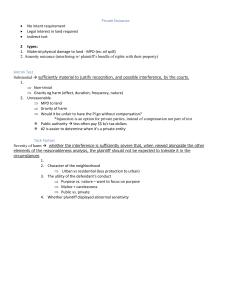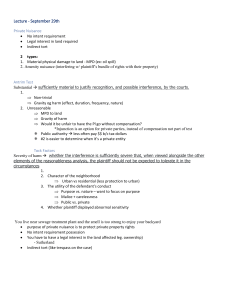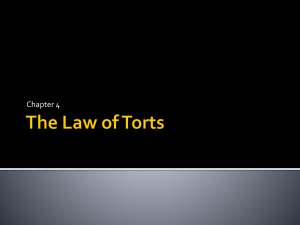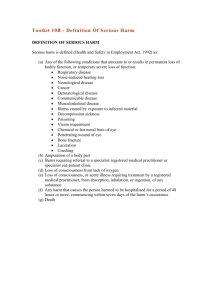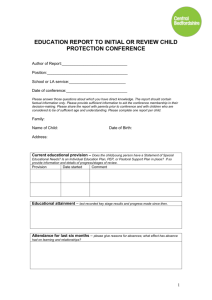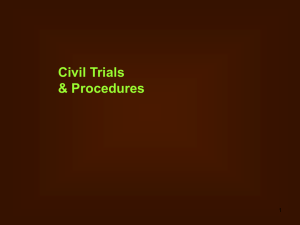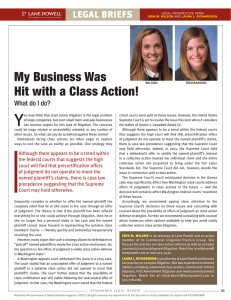Key Legal Terms
advertisement
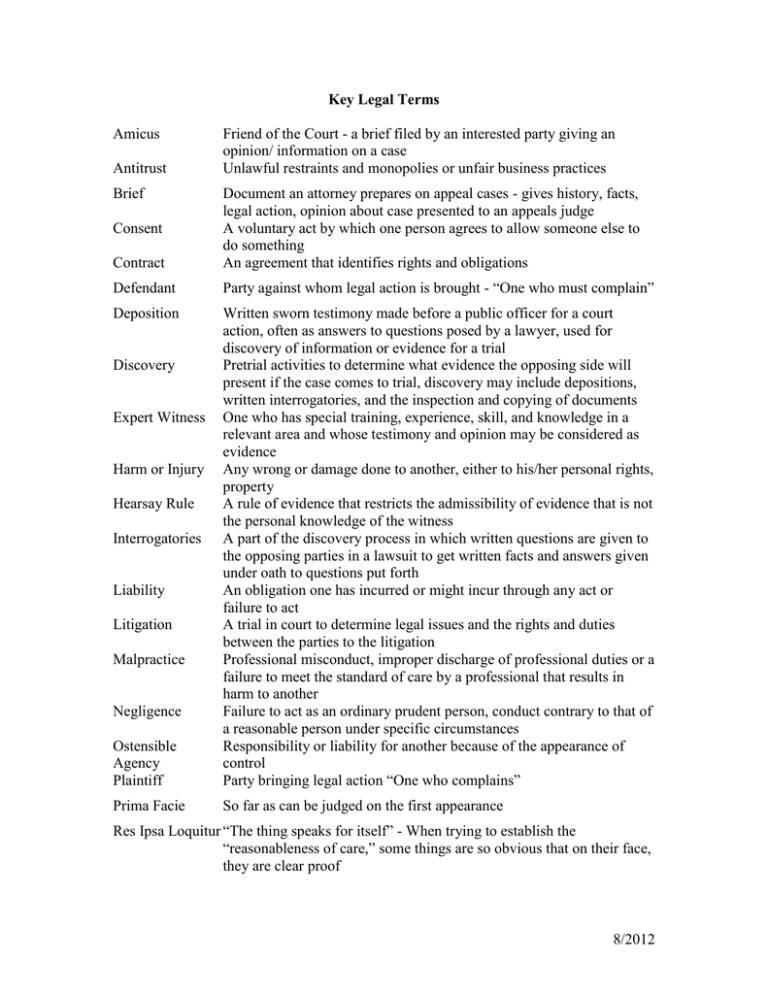
Key Legal Terms Amicus Antitrust Brief Friend of the Court - a brief filed by an interested party giving an opinion/ information on a case Unlawful restraints and monopolies or unfair business practices Contract Document an attorney prepares on appeal cases - gives history, facts, legal action, opinion about case presented to an appeals judge A voluntary act by which one person agrees to allow someone else to do something An agreement that identifies rights and obligations Defendant Party against whom legal action is brought - “One who must complain” Deposition Ostensible Agency Plaintiff Written sworn testimony made before a public officer for a court action, often as answers to questions posed by a lawyer, used for discovery of information or evidence for a trial Pretrial activities to determine what evidence the opposing side will present if the case comes to trial, discovery may include depositions, written interrogatories, and the inspection and copying of documents One who has special training, experience, skill, and knowledge in a relevant area and whose testimony and opinion may be considered as evidence Any wrong or damage done to another, either to his/her personal rights, property A rule of evidence that restricts the admissibility of evidence that is not the personal knowledge of the witness A part of the discovery process in which written questions are given to the opposing parties in a lawsuit to get written facts and answers given under oath to questions put forth An obligation one has incurred or might incur through any act or failure to act A trial in court to determine legal issues and the rights and duties between the parties to the litigation Professional misconduct, improper discharge of professional duties or a failure to meet the standard of care by a professional that results in harm to another Failure to act as an ordinary prudent person, conduct contrary to that of a reasonable person under specific circumstances Responsibility or liability for another because of the appearance of control Party bringing legal action “One who complains” Prima Facie So far as can be judged on the first appearance Consent Discovery Expert Witness Harm or Injury Hearsay Rule Interrogatories Liability Litigation Malpractice Negligence Res Ipsa Loquitur “The thing speaks for itself” - When trying to establish the “reasonableness of care,” some things are so obvious that on their face, they are clear proof 8/2012 Stare Decisis “The thing has already been decided” - You can’t go back once the case has been decided and add new defendants “Let the master answer” - The employer is responsible for the legal consequences of the acts of the employee while s/he acts within the scope of his/her employment; the employer may be temporary or have “borrowed” the employee and thus becomes liable for the actions of the “borrowed servant” - in the case of the surgeon and the OR staff, the physician is considered the captain of the ship To abide by the decided cases Tort A civil harm Voir dire “To look and say,” the plaintiff has the ability to review the hearing panel to determine conflict of interest, economic competition Res Judicata Respondeat Superior 8/2012
